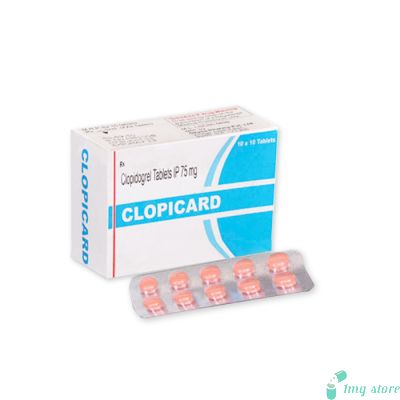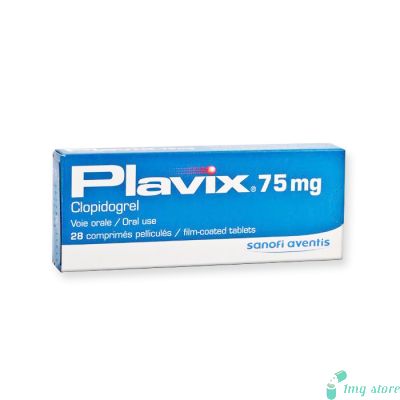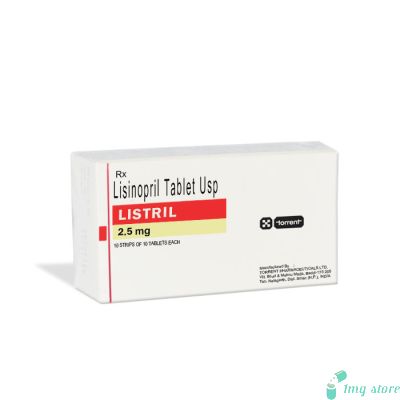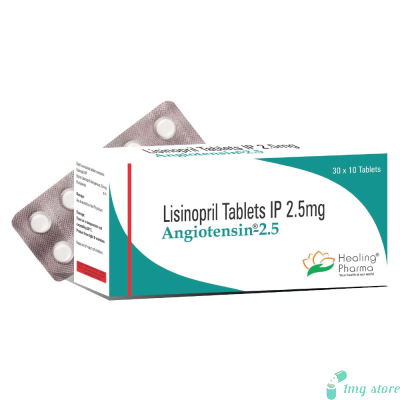Fovas Tablet (Fosinopril)
Fosinopril Tablet (brand name Monopril) is an oral medication used to treat high blood pressure (hypertension) and certain heart conditions.
Introduction of Fovas Tablet (Fosinopril)
Fosinopril Tablet (brand name Monopril) is an oral medication used to treat high blood pressure (hypertension) and certain heart conditions. It belongs to the class of drugs known as ACE inhibitors (angiotensin-converting enzyme inhibitors), which work by relaxing blood vessels, thus improving blood flow and reducing the workload on the heart. Fosinopril Tablet, marketed as Monopril, is a prescription medication commonly used to manage hypertension and various cardiac conditions. It falls under the class of ACE inhibitors, which assist in reducing blood pressure and enhancing blood flow. This comprehensive guide provides information on the dosage, uses, and prices of Fosinopril Tablets, including the 10 mg and 20 mg variants.
Dosage Information:
The dosage of Fosinopril Tablet depends on several factors, including the patient's medical condition and response to treatment. It is crucial to follow the prescribing physician's instructions and adhere to the recommended dosage. Generally, the initial dose for hypertension is 10 mg once daily, which can be adjusted as per the individual's needs. For heart failure patients, the starting dose is typically lower. Regular monitoring and adjustment of dosage may be required for optimal therapeutic effects.
Fosinopril 10 mg Tablet Price:
The price of Fosinopril 10 mg tablets can vary depending on various factors such as the brand, location, and discounts available. It is advisable to check the 1mgstore.com online platform to obtain accurate pricing information. Typically, generic versions of Fosinopril tend to be more affordable compared to brand-name options.
Fosinopril 20 mg Tablet Price:
Similarly, the cost of Fosinopril 20 mg tablets can vary depending on the brand and location of purchase. It is recommended to compare prices across different pharmacies or consult with healthcare providers to find the most suitable and cost-effective option. Generic versions of Fosinopril 20 mg tablets are usually more economical than brand-name alternatives.
In conclusion, Fosinopril Tablet, marketed as Monopril, is an ACE inhibitor commonly used to treat hypertension, heart failure, and kidney disease. The recommended dosage varies based on the patient's condition, and it is crucial to follow the instructions provided by the prescribing physician. Fosinopril 10 mg and 20 mg tablets are available, with prices varying depending on the brand and location. It is advisable to consult with healthcare professionals and compare prices to find the most appropriate and affordable option. Always remember to seek medical advice before starting or altering any medication regimen.
Precautions To Br Taken While Using Fovas Tablet (Fosinopril)
Allergies: Prior to initiating Fosinopril Tablet (Monopril) treatment, it is important to inform your healthcare provider about any known allergies to ACE inhibitors or any other medications. Allergic reactions can range from mild skin rashes to severe symptoms such as swelling of the face, throat, or tongue. Immediate medical attention should be sought if an allergic reaction occurs.
Pregnancy and Breastfeeding: Fosinopril Tablet is generally not recommended during pregnancy as it may harm the developing fetus. It is important to discuss the potential risks and benefits with your healthcare provider if you are pregnant or planning to become pregnant. Additionally, it is advised to avoid Fosinopril Tablets while breastfeeding, as it may pass into breast milk and harm the nursing infant.
Kidney and Liver Conditions: Individuals with impaired kidney or liver function may require dosage adjustments or close monitoring while taking Fosinopril Tablet. It is essential to inform your healthcare provider about any pre-existing kidney or liver conditions.
Salt/Volume Depletion: Fosinopril Tablet can further decrease blood pressure in patients with salt or volume depletion (e.g., due to excessive sweating, diarrhea, or vomiting). Adequate fluid intake and sodium levels should be maintained to avoid potential complications.
Surgery and Anesthesia: If you are scheduled for surgery or undergoing anesthesia, it is important to inform your healthcare provider about your Fosinopril Tablet use. The medication may interact with certain anesthetic agents, leading to a drop in blood pressure. The dosage may need to be temporarily adjusted or discontinued before surgery.
Best Application of Fovas Tablet (Fosinopril)
Hypertension Treatment: Fosinopril Tablet is primarily prescribed to manage hypertension. By inhibiting the production of angiotensin II, it relaxes blood vessels, allowing for smoother blood flow and lowering blood pressure. It is often used as part of a comprehensive treatment plan that includes lifestyle changes.
Heart Failure: Fosinopril Tablet can also be used in the management of heart failure. It helps improve cardiac function by reducing the workload on the heart and enhancing blood circulation. This medication is often prescribed in combination with other heart failure therapies.
Kidney Disease: Fosinopril Tablet may be utilized to slow the progression of kidney disease in individuals with diabetes or hypertension. Reducing blood pressure and the strain on the kidneys, it can help protect renal function and prevent further damage.
Secondary Effects of Fovas Tablet (Fosinopril)
Hypotension: One of the common side effects of Fosinopril Tablet is low blood pressure, leading to symptoms such as dizziness, lightheadedness, or fainting. It is important to rise slowly from a sitting or lying position to minimize the risk of dizziness.
Cough: ACE inhibitors, including Fosinopril Tablet, may cause a persistent dry cough in some individuals. If the cough becomes bothersome, inform your healthcare provider, as an alternative medication may be recommended.
Hyperkalemia: Fosinopril Tablet can occasionally result in increased potassium levels in the blood. Symptoms of hyperkalemia may include muscle weakness, irregular heartbeat, or tingling sensations. Regular monitoring of potassium levels is crucial, especially in individuals at higher risk.
Kidney Problems: In rare cases, Fosinopril Tablet may cause kidney dysfunction or worsening of pre-existing kidney conditions. Symptoms such as decreased urine output, swelling in the feet or ankles, or unexplained weight gain should be reported to your healthcare provider.
Angioedema: Although rare, Fosinopril Tablet can cause angioedema, a serious allergic reaction characterized by swelling of the face, lips, tongue, or throat. This requires immediate medical attention.
Skin Reactions: Fosinopril Tablet may rarely cause skin reactions, including rashes, itching, or hives. If you experience any skin-related symptoms, consult your healthcare provider.
Other Side Effects: Additional side effects that have been reported with Fosinopril Tablet include headache, fatigue, dizziness, nausea, abdominal pain, and taste disturbances. If these side effects persist or worsen, inform your healthcare provider.
Can Fosinopril Tablet be taken with food?
Answer: Yes, Fosinopril Tablet can be taken with or without food. However, it is advisable to take it consistently in the same manner, either with or without food, to maintain consistent blood levels of the medication.
Can I consume alcohol while taking Fosinopril Tablet?
Answer: It is generally recommended to avoid or limit alcohol consumption while taking Fosinopril Tablet. Alcohol can increase the blood pressure-lowering effect of the medication, leading to dizziness or fainting. Moreover, alcohol may interfere with the effectiveness of Fosinopril Tablet in controlling blood pressure.
How long does it take for Fosinopril Tablet to start working?
Answer: The onset of action of Fosinopril Tablet can vary among individuals. In general, some blood pressure reduction can be observed within hours of the first dose. However, the full therapeutic effect may take several weeks of regular use. It is important to continue taking the medication as prescribed, even if immediate results are not noticeable.
Can Fosinopril Tablet cause interactions with herbal supplements?
Answer: Yes, Fosinopril Tablet may interact with certain herbal supplements. Some herbal products, such as licorice root and hawthorn, can lower blood pressure. When combined with Fosinopril Tablet, these effects can be intensified, leading to excessively low blood pressure. It is important to inform your healthcare provider about any herbal supplements you are taking to avoid potential interactions.
Can Fosinopril Tablet cause changes in blood glucose levels?
Answer: Fosinopril Tablet generally does not significantly affect blood glucose levels. However, as with any antihypertensive medication, individual responses may vary. It is important for individuals with diabetes to regularly monitor their blood glucose levels and discuss any concerns with their healthcare provider.
Potential Drug Connection with Fovas Tablet (Fosinopril)|
Diuretics: Concurrent use of diuretics (water pills) and Fosinopril Tablets may enhance the blood pressure-lowering effect. This combination can increase the risk of hypotension (low blood pressure) and electrolyte imbalances. Close monitoring of blood pressure and electrolyte levels is essential.
Non-Steroidal Anti-Inflammatory Drugs (NSAIDs): NSAIDs such as ibuprofen, naproxen, and aspirin may diminish the antihypertensive effects of Fosinopril Tablet. Additionally, concomitant use can increase the risk of kidney problems. It is advisable to consult with your healthcare provider before using NSAIDs alongside Fosinopril Tablet.
Potassium-Sparing Diuretics and Potassium Supplements: The concurrent use of Fosinopril Tablet with potassium-sparing diuretics (e.g., spironolactone) or potassium supplements can increase potassium levels in the blood, potentially leading to hyperkalemia. Regular monitoring of potassium levels is important when using these medications together.
Lithium: Fosinopril Tablet may increase the levels of lithium in the body, which can lead to toxic effects. If you are taking lithium, your healthcare provider should closely monitor your lithium levels while using Fosinopril Tablet.
Other Antihypertensive Agents: Combining Fosinopril Tablet with other antihypertensive medications may result in additive blood pressure-lowering effects. Dosage adjustments and close monitoring of blood pressure are necessary
| Manufacturer | : | Cadila Pharmaceuticals Ltd |
| Equivalent Brand | : | Monopril |
| Generic Search | : | Fosinopril |















